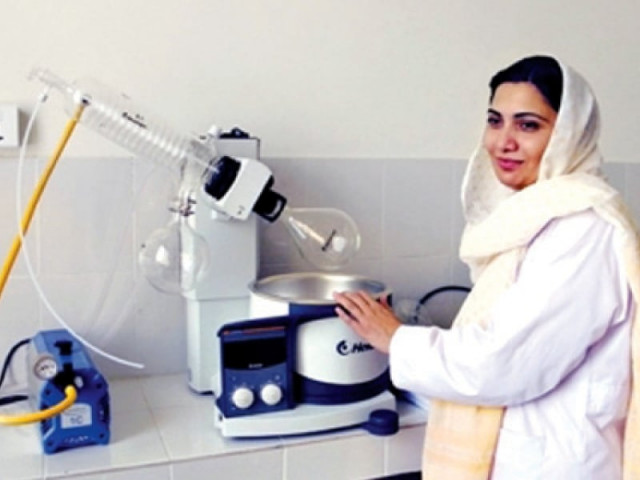Standing tall: Pakistani researcher wins Unesco fellowship
Dr Gul Shahnaz is among 15 selected women from around the world.

Standing tall: Pakistani researcher wins Unesco fellowship
They face a tall patriarchal social order, gender barriers and limited opportunities. But despite all the hurdles, Pakistani women have continued to make their country proud at the international level.
Dr Gul Shahnaz, an Assistant Professor at the Quaid-i-Azam University’s Department of Pharmacy, is the latest addition to the list of Pakistani women who have won global accolades and awards through their hard work and talent.
Shahnaz is among 15 young women scientists from around the world who have been awarded the prestigious UNESCO-L’Oreal International Fellowships for the year 2014.
She is currently in Paris to receive the award.
“It is a matter of pride for me and my family,” Shahnaz, who got her PhD in Pharmaceutical Technology from Austria’s University of Innsbruck, wrote in an email about her achievement. “But most of all, I am happy that Pakistan is getting represented in the international scientific community.”
The fellowships are a part of the For Women in Science programme run by French cosmetics giant L’Oreal in partnership with UNESCO. The programme started in 1998 and aims to support women researchers around the world, according to L’Oreal’s website.
Young female researchers beginning their careers in life sciences are supported through 15 annual $20,000 fellowships and the work of accomplished women scientists is recognised through five annual $100,000 grant awards, under the programme.

In an informal interview with The Express Tribune before she left for France, Shahnaz said she won the fellowship for her research proposal about a drug delivery system for Leishmaniasis, a parasitic disease that is spread to humans by the bite of infected sand flies.
The disease affects over 12 million people worldwide and causes over 20,000 deaths annually, according to some estimates.
Around one million cases of the disease’s cutaneous form were reported worldwide between 2007 and 2012, according to the World Health Organisation (WHO). The cutaneous version is also the major form of Leishmaniasis in Pakistan with over 5,000 cases reported in 2012, a WHO report stated.
But the sole existing treatment is expensive and risky.
Shahnaz’s research aims to use nanotechnology to create a new system of treatment which allows efficient and more stable administration of the medicine. Her research will also look to determine alternative ways of drug intake and to overcome the reduction in the drug’s effectiveness, she said. “In a particularly innovative extension of her research, she will also attempt to overcome the problem of drug resistance associated with conventional therapies,” according to a description of Shahnaz’s research on L’Oreal’s website. “If she achieves her goal, her work will enhance quality of life for countless Leishmaniasis patients around the globe.”
She is also keen on bringing projects through her fellowship grant back to Pakistan so young researchers and local scientists can also benefit.
“We need to learn from the attitude of European scientists who are eager to share their knowledge and research with students and other scientists,” Shahnaz said. “What good is our knowledge, if we guard it and not let others benefit from it.”
Published in The Express Tribune, March 19th, 2014.



















COMMENTS
Comments are moderated and generally will be posted if they are on-topic and not abusive.
For more information, please see our Comments FAQ